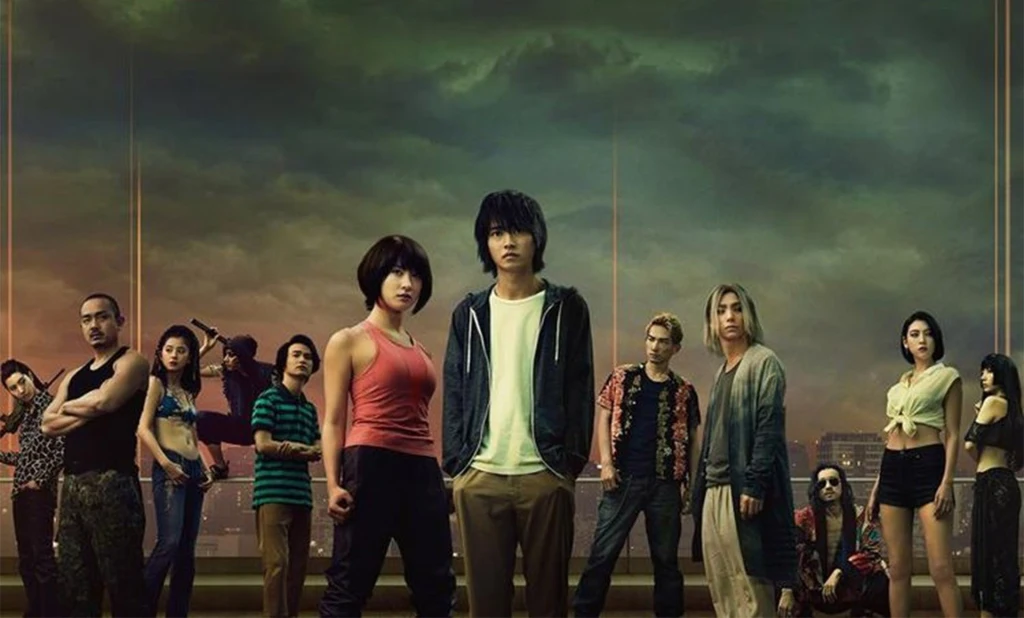It’s not an unusual Japanese theme: young people brought to a remote place and forced to fight to the death in an elaborate ‘game’. The 2000 film Battle Royale saw the Japanese government force a group of ninth-grade students into combat. 2007’s popular Liar Game saw a young naive girl forced into a psychological battle to win 100 million yen. That drama was so popular it got an even more popular Korean adaptation.
Japanese death games are a genre in and of themselves and appear in many variations throughout film, television, graphic novels and art. What separates Japan’s latest iteration of this particular plotline from the one’s before it is the rise of Japan’s Hikikomoris. That generation of lost youth: of shut-ins and agoraphobics with crippling social anxiety.

Alice in Borderland is a Netflix live-action adaptation of the manga of the same name. A thriller, a horror and a parallel world mystery: three friends find themselves transported to an empty post-apocalyptic Tokyo and forced to play a never-ending and ultimately lethal “game”.
As the first episode opens, we meet friends Ryohei Arisu (Kento Yamazaki), Chōta Segawa (Yuki Morinaga) and Daikichi Karube (Keita Machida), all of whom struggle with various aspects of social exclusion. Arisu is a shiftless gamer struggling with the quintessential Hikikomori challenge of being unable to live up to his family’s expectations. Karube has been making ends meet through low-paid, insecure work; the kind that Japanese culture tends to ascribe to those who are lazy or unmotivated. Segawa may have a job but all his money goes to his demanding mother; a member of one of Japan’s many cults. His work is suffering because of it.
In a scene near the beginning, the three cause an accident by being aggressively self-absorbed in public. It’s not that they are bad per se, they’re simply lost in three different but ultimately similar ways.
When the friends find themselves in an eerily-abandoned Tokyo, they are at first jubilant. Finally, the pressure of society is gone. No parental responsibilities or expectations, unreasonable bosses, or stifling social rules to weigh them down. And yet Arisu is about to discover that his greatest fantasy – a world where he can do whatever he wants and just play games – is actually a hellscape. But possibly also one where he could be King.
At the end of a fast-paced episode one – one that definitively shows rather than tells and is unburdened by unnecessary exposition – we know very little about the world the three young men are now trapped in (other than they can’t leave and it’s deadly). But the first episode at least is tightly-written, well-paced, slickly-edited and manages to merge manga vibes with live action very well.
And while nothing in Alice in Borderland is ground-breakingly new (think The Liar Game meets The Cube meets Battle Royale), it is very well-executed and thankfully available on Netflix as a binge.
As this is a premiere watch, I haven’t seen the rest of the season and am therefore unaware how it unfolds or ends. But it gives rise to enough questions for me to continue watching. Who set this up? Why? Where are they? How did they get there? And what is the purpose behind the game?
And with a day free for nothing but binging dramas, I guess I’m about to find out
Alice in Borderland is available for streaming on Netflix
Oo! I heard so much about Alice in Borderland. I definitely want to give it a watch!